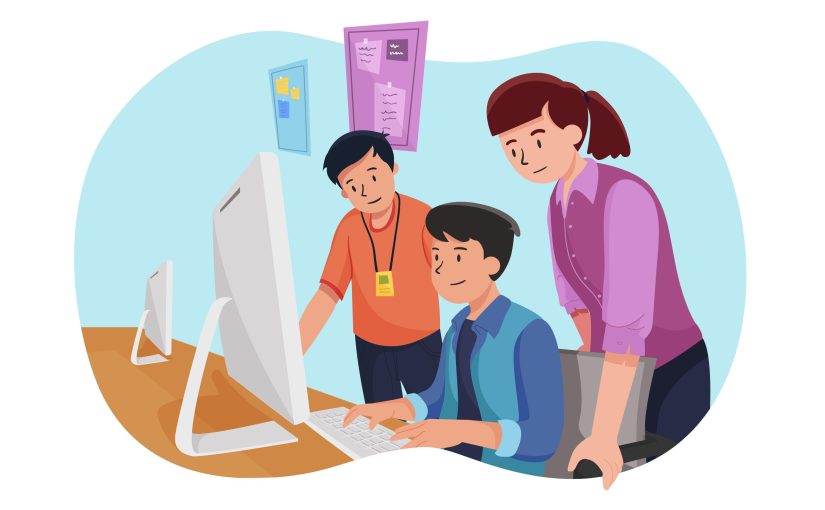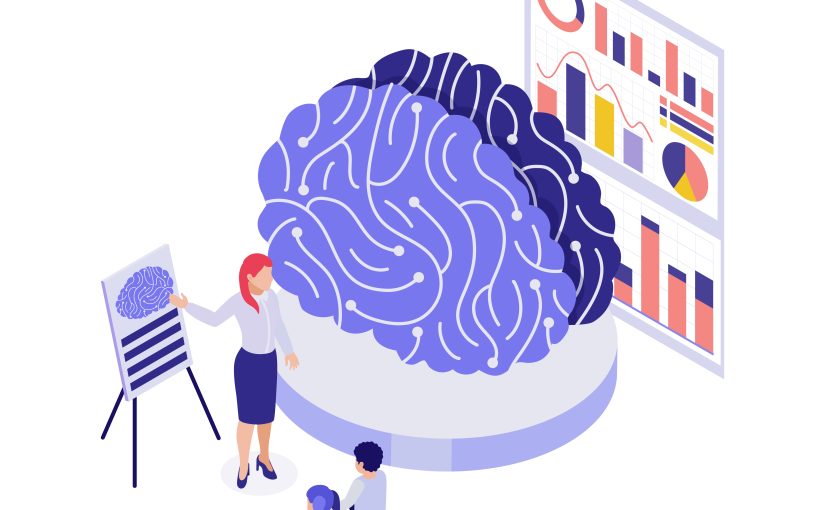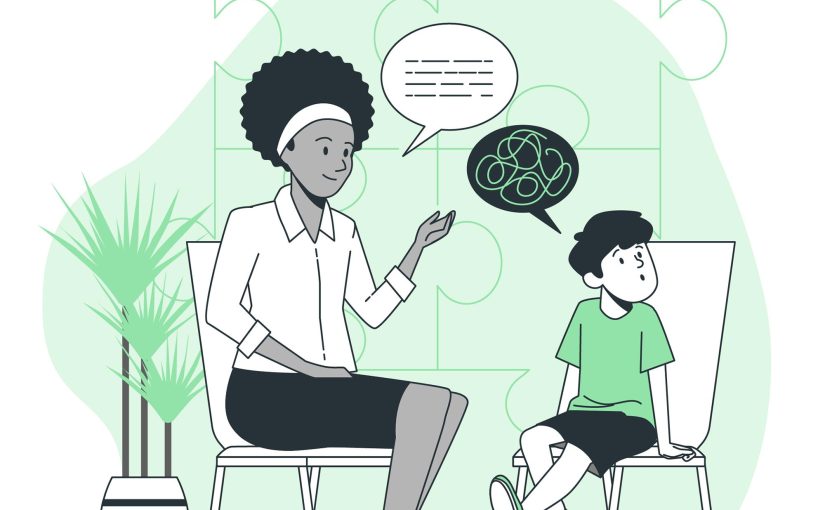 ABA Courses
ABA Courses Behavioral Therapy for Autism
Behavioral Therapy for Autism Developmental Delay
Developmental Delay Neuro developmental Therapy
Neuro developmental Therapy Down Syndrome Therapy
Down Syndrome Therapy Autism Screening
Autism Screening Vocational Training
Vocational TrainingHelping children speak, communicate and understand language.

Children with developmental disorders such as autistic spectrum disorders may struggle to communicate or get along with others, and they often find it difficult to socialize and be creative. The main struggles that autistic children have tend to hinge on communication, interaction and creativity—all of which are vital aspects of being social. Approximately one third to one half of individuals on the autism spectrum have significant difficulty using speech and language as an effective means of communication.
Interpersonal encounters can become overwhelming, perplexing, and unpleasant as a result of these challenges in speech generation and processing, which are sometimes mistaken as a general disinterest in social connections.
Speech and Language Therapists (SLTs) perform assessments to help children and adults who have communication disorders such as speech impairments. Speech and Language Therapists also help people with swallowing problems take care of their lives on a daily basis by helping them develop plans and strategies to help not just with the disorder, but encourage long term health too.
Speech and language therapy helps to improve the quality of life for patients living with communication difficulties, and those associated with autism or developmental delays.
Speech-language pathologists (SLPs) are trained to work on things like reading, listening, speaking, and language. Also, Speech-language pathologists’ work setting includes both private services and special schools. Depending on what area a child is lacking the skills in, activities are envisioned for the client that are aimed at helping the individual develop suggested skills in those areas that they have identified as needing help with.
Consider the child’s communication skills: This is the starting point for speech therapy for autism. The Speech-language pathologist reviews the child’s level of fluency and his or her ability to communicate without providing excessive prompts to ensure understanding.
Children with autism have a wide range of skills, abilities and characteristics. Some children may not be able to develop social skills independently or they may talk about subjects at inappropriate times. Therefore, speech therapy for autism focuses on age appropriate communication and social skills that rely mostly on the core communication structures of language - syntax, semantics, discourse and pragmatics.
Non-verbal or speech-delayed children are different from other children, but that doesn't mean they don't have things in common with all kids their age. In fact, by using tools like touch, sounds, and visual cues — any child can communicate through the use of objects just as they would verbally.
These tools include:
WHO CAN BENEFIT SPEECH THERAPY?
For individuals with autism spectrum disorder, a team of different specialists work together to provide proper care. This can include doctors, occupational therapists, speech therapists, and any other relevant specialties that may be required. For instance, some people may need the help of a physical therapist. These individuals help those diagnosed improve their communication skills and maximize their potential for success in all aspects of life.
Speech therapy for autism includes different treatment approaches. The speech therapist will first assess the patient before creating a personalized treatment plan to get the individual talking.
For younger children with ASD, treatment may focus on improving speech and language skills. This involves learning basic communication skills like eye contact or joint attention. Speech therapy for autism often involves the use of play and interaction as a medium to help the child improve certain areas in their life that are necessary for effective communication. Parents or caregivers may be highly involved in this process, helping their child develop the ability to speak more clearly or effectively.
Studies have shown that speech-therapy for autism can have a positive impact over autism, children with autism often struggling to communicate and develop proper verbal language skills. In one particular case study, researchers found that undergoing this treatment led to improvements in the child's ability to speak
with others by imitating them, repeating words and phrases, as well as using sentences to communicate with others.
Starting early is a boon for individuals with ASD because it sets them on the best path for reaching their full potential. Early detection and intervention pave the way for a brighter future, giving caregivers of such individuals tools that work in their favor to aid the person diagnosed with ASD over time. As current research suggests, treatment should start before 18 months of age, though children can be treated as late as 8 years old and will still benefit from care provided, they remain at risk of developing autism. Whatever your child's age at diagnosis, get them help soon because children with autism who receive intensive early interventions have remarkable recoveries that make it easy to see why so many people are now pushing for earlier diagnosis rather than later!
SPEECH & LANGUAGE THERAPY AT COGNIABLE
CogniAble is a multispecialty center dealing with the ins and outs of special needs support through various therapies. We are situated in various states in India. Our team comprises professional clinical and psychological experts. We provide multi-disciplinary, holistic and customized therapies to our children by trained professionals. Our Speech and Language therapists work extensively on making clearer speech sounds, incorporating emotions with the correct facial expression, working on tone of voice, strengthening the muscles in the mouth, jaw and neck as well as using other tools to help children communicate in the most efficient manner.
Copyright © 2023 all right reserved.